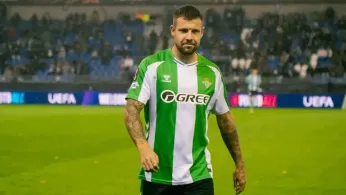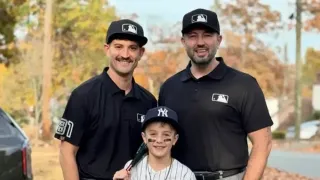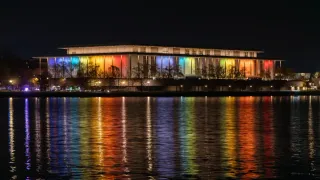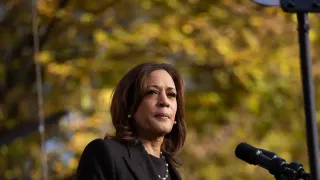
Nov 2
Pink Hair, Don’t Care: Aitor Ruibal Dribbles Past Homophobia On—and Off—the Pitch
READ TIME: 15 MIN.
When you think of soccer’s flashiest moments, you probably conjure a last-minute goal or a jubilant stadium roar. But in Spain this week, Real Betis winger Aitor Ruibal scored a different kind of victory—one for queer visibility, self-expression, and the right to show up exactly as you are, even when the world heckles from the sidelines .
Ruibal, known for his energetic play and signature style, lit up Instagram with a photo showing off his newly dyed pink and blue hair. The image—playful, proud, and unconcerned—was more than a fashion statement. It was a brightly-colored line in the sand, a challenge to the rigid norms that too often police gender and self-expression in sports .
Shortly after Ruibal posted his look, the internet did what the internet does: it divided. While many fans celebrated his boldness, a wave of homophobic insults flooded his mentions, with some attempting to shame him for the “unmanly” choice of hair color and style . The messages ranged from the tired (“That’s not what a real footballer looks like!”) to the outright hateful. But Ruibal, far from backing down or deleting the post, responded with characteristic cool: he simply kept showing up—online and on the field—undiminished.
The episode echoes a broader pattern in men’s football, where expressions of queerness, gender fluidity, or even just sartorial playfulness are policed with a ferocity that speaks volumes about the sport’s ongoing struggle with inclusion. Ruibal’s refusal to apologize, and his choice to keep the pink, is a subtle but powerful rebuke.
If you’re LGBTQ+ and have ever hesitated before dyeing your hair, painting your nails, or wearing what makes you feel yourself, Ruibal’s moment is for you. The visual—a top-tier athlete with pink and blue hair, standing his ground—offers a rare glimpse of what genuine allyship and personal authenticity look like in the pressure-cooker of professional sport.
And it’s not just about aesthetics. In a world where homophobic and transphobic abuse still runs rampant through locker rooms and stadiums, visibility is resistance. Every time a public figure shrugs off gendered norms, it chips away at the toxic masculinity that has long kept queer people at the margins of the beautiful game .
Ruibal’s Real Betis teammates have also faced similar abuse in recent months, receiving homophobic insults after appearing at a wedding carrying purses—another gesture that prompted online vitriol, but also a groundswell of support from progressive fans . The team’s public denouncement of the hatred, and their decision to keep posting images that challenge gender expectations, signals a turning tide.
Football, like many mainstream sports, has long been a battleground for questions of gender, sexuality, and belonging. Historically, coming out or even embracing styles seen as “feminine” could mean career suicide for male athletes. But in recent years, moments like Ruibal’s—backed by both supporters and teammates—are starting to rewrite the script.
This new wave of visibility doesn’t just benefit queer fans or players; it’s a win for everyone who believes sport should be a space of joy, expression, and community, not conformity. Social media platforms, especially Instagram, have become crucial battlegrounds, where norms are challenged and new narratives are built—sometimes one selfie at a time .
Ruibal’s story is a reminder: visibility isn’t just about representation, it’s about transformation. When a player refuses to hide, he doesn’t just make space for himself—he makes it for every queer kid who loves football and wonders if there’s a place for them in the stands, the locker room, or the coaching staff.
While Ruibal’s Instagram post didn’t include a direct verbal clapback, his actions speak volumes. The image itself, paired with his refusal to back down in the face of hostility, offers a message that’s as quotable as any official statement: “Pink hair, blue hair, my hair—my game. I show up as myself, and that’s victory enough.” .
For queer football fans—and anyone who’s ever felt the pressure to shrink or hide—Ruibal’s story is more than a headline; it’s an invitation. An invitation to play, to cheer, to dye, to dare.
As the dust settles, one thing is clear: the era when men’s football meant rigid gender norms and silent suffering is passing, if slowly. With every pink streak, every purse, and every unapologetic selfie, players like Ruibal are helping to build a culture where self-expression is not just tolerated but celebrated.
Ruibal’s pink hair will eventually fade, as all colors do. But the message—and the movement—will linger. For LGBTQ+ sports fans everywhere, it’s a signal: the game is changing, and so can you.






